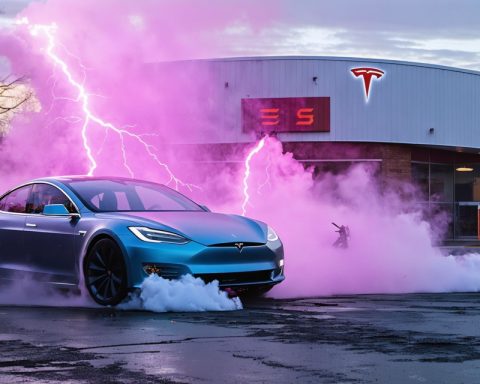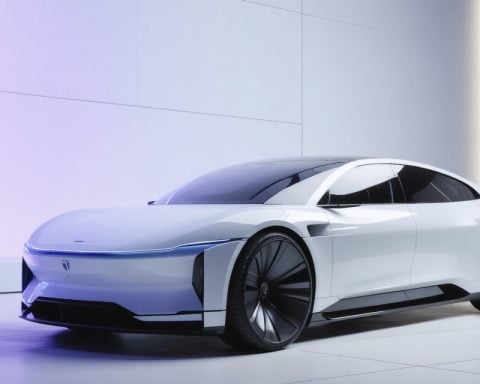In a whirlwind of technological advancement, Nvidia’s stocks are reaching unprecedented heights. The surge is fueled by a growing interest in artificial intelligence (AI) and its transformative impact on smartphones. This new wave represents a potential reinvention of personal mobile devices, driven by Nvidia’s cutting-edge innovations.
AI Chipsets: The Next Big Thing?
Nvidia’s expertise in graphics processing units (GPUs) is already legendary. Now, the company is channeling this prowess into the development of AI-driven chipsets specifically designed for smartphones. These chipsets promise to enhance everything from camera capabilities to real-time language translation – features that could redefine our interaction with mobile technology.
Investment Surge Reflects Future Potential
The investment community is taking note, as evidenced by Nvidia’s skyrocketing stock prices. Investors are particularly excited about the prospects of integrating AI capabilities into everyday devices, a domain where Nvidia is poised to become a leader. The company’s strategic moves hint at a future where smartphones are not just communication tools but intuitive, smart companions.
Challenges and Opportunities Ahead
While the potential is enormous, Nvidia faces significant challenges. Competition is fierce, with other tech giants aiming to capture their share of the burgeoning AI market. Despite these hurdles, Nvidia’s advances herald an exciting era of AI-focused development, which could eventually lead to breakthroughs in mobile communication and beyond.
Nvidia’s ventures signal a tantalizing future where our smartphones might be smarter than ever, potentially reshaping the tech landscape and our daily lives.
Is Nvidia’s AI Revolution a Double-Edged Sword?
As Nvidia’s AI chipsets pave the way for smart innovations, there’s more beneath the surface that reshapes society. Think about the environmental impact; these advanced chipsets require immense energy, potentially exacerbating our carbon footprint. The quest for more robust processors could put significant pressure on global energy supplies, raising questions about sustainability.
Moreover, with over 3 billion smartphone users worldwide, the data privacy controversy looms large. AI-driven features may lead to increased data collection, sparking debates about how much personal information is stored and shared. Could this mean an era of unprecedented surveillance, or will it encourage stricter data protection laws?
What about smaller tech companies? The competitive advantage may widen the gap between tech giants and budding startups. With Nvidia’s advancements, larger players could monopolize the market, potentially stifling innovation from smaller firms. Is there room for collaboration, or will competition rule the day?
Despite the challenges, these chipsets promise tangible benefits. Consider accessibility: real-time language translation could break down communication barriers, fostering global connectivity. Improved cameras and AI-powered applications might also revolutionize industries like healthcare and entertainment.
While Nvidia spearheads this change, the question remains: Are we ready for a smarter yet more surveillant and energy-dependent future? Navigating this landscape requires balancing innovation with ethical considerations, responsibility, and global collaboration.
For more insights on technological advancements, visit nvidia.com.























